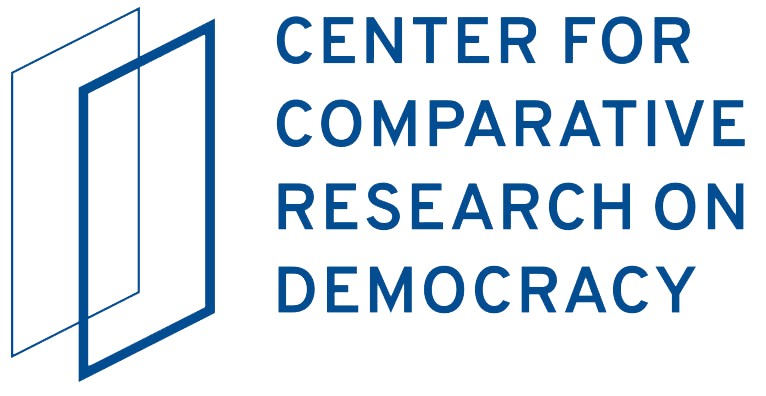THE EUROPEAN COURT OF HUMAN RIGHTS AND TURKEY: A FAILURE IN THE ENFORCEMENT OF LIBERAL IDEAS?
Researcher
Dr. Esra Demir-GürselProject description
Esra’s research investigates the limits of the European Court of Human Rights (the Court) to respond to growing authoritarian tendencies among the member states of the Council of Europe.
It has been widely accepted that one of the main motivations of the drafters of the European Convention on Human Rights (the Convention) in the aftermath of World War II was to establish “an early warning device” against a drift towards authoritarianism among the members of the Council of Europe. Today, however, the Court is criticized for responding to authoritarian laws, policies and practices in weak, cautious and delayed ways.
Against this background, Esra’s research focuses on the case of Turkey with an aim to investigate the Court’s current limits in the light of its historical background, going beyond the mainstream accounts on the origins of the Convention system. Reviewing the Court’s case-law against Turkey, her research traces whether—and, if so, in what ways—the historical and political context of the establishment of the Convention system has informed the Court’s responses to the complaints brought before it against Turkey. Her review of the Court’s responses is accompanied by an investigation into their effects on Turkey’s domestic politico-legal sphere.
Esra's research is therefore built upon an investigation into three pillars: (1) historical context of the drafting and evolution of the Convention system, (2) the current responsiveness of the Court to authoritarian laws, policies, and practices, and (3) the ways in which the Court's case law is interpreted, used, abused, and reacted upon in the domestic order by the government and domestic judiciary.
It has been widely accepted that one of the main motivations of the drafters of the European Convention on Human Rights (the Convention) in the aftermath of World War II was to establish “an early warning device” against a drift towards authoritarianism among the members of the Council of Europe. Today, however, the Court is criticized for responding to authoritarian laws, policies and practices in weak, cautious and delayed ways.
Against this background, Esra’s research focuses on the case of Turkey with an aim to investigate the Court’s current limits in the light of its historical background, going beyond the mainstream accounts on the origins of the Convention system. Reviewing the Court’s case-law against Turkey, her research traces whether—and, if so, in what ways—the historical and political context of the establishment of the Convention system has informed the Court’s responses to the complaints brought before it against Turkey. Her review of the Court’s responses is accompanied by an investigation into their effects on Turkey’s domestic politico-legal sphere.
Esra's research is therefore built upon an investigation into three pillars: (1) historical context of the drafting and evolution of the Convention system, (2) the current responsiveness of the Court to authoritarian laws, policies, and practices, and (3) the ways in which the Court's case law is interpreted, used, abused, and reacted upon in the domestic order by the government and domestic judiciary.
Duration
2020–2022
Funding
Georg Forster Research Fellowship, the Alexander von Humboldt Foundation
THE EUROPEAN COURT OF HUMAN RIGHTS AND TURKEY: A FAILURE IN THE ENFORCEMENT OF LIBERAL IDEAS?
Researcher
Dr. Esra Demir-GürselProject description
Esra’s research investigates the limits of the European Court of Human Rights (the Court) to respond to growing authoritarian tendencies among the member states of the Council of Europe.
It has been widely accepted that one of the main motivations of the drafters of the European Convention on Human Rights (the Convention) in the aftermath of World War II was to establish “an early warning device” against a drift towards authoritarianism among the members of the Council of Europe. Today, however, the Court is criticized for responding to authoritarian laws, policies and practices in weak, cautious and delayed ways.
Against this background, Esra’s research focuses on the case of Turkey with an aim to investigate the Court’s current limits in the light of its historical background, going beyond the mainstream accounts on the origins of the Convention system. Reviewing the Court’s case-law against Turkey, her research traces whether—and, if so, in what ways—the historical and political context of the establishment of the Convention system has informed the Court’s responses to the complaints brought before it against Turkey. Her review of the Court’s responses is accompanied by an investigation into their effects on Turkey’s domestic politico-legal sphere.
Esra's research is therefore built upon an investigation into three pillars: (1) historical context of the drafting and evolution of the Convention system, (2) the current responsiveness of the Court to authoritarian laws, policies, and practices, and (3) the ways in which the Court's case law is interpreted, used, abused, and reacted upon in the domestic order by the government and domestic judiciary.
It has been widely accepted that one of the main motivations of the drafters of the European Convention on Human Rights (the Convention) in the aftermath of World War II was to establish “an early warning device” against a drift towards authoritarianism among the members of the Council of Europe. Today, however, the Court is criticized for responding to authoritarian laws, policies and practices in weak, cautious and delayed ways.
Against this background, Esra’s research focuses on the case of Turkey with an aim to investigate the Court’s current limits in the light of its historical background, going beyond the mainstream accounts on the origins of the Convention system. Reviewing the Court’s case-law against Turkey, her research traces whether—and, if so, in what ways—the historical and political context of the establishment of the Convention system has informed the Court’s responses to the complaints brought before it against Turkey. Her review of the Court’s responses is accompanied by an investigation into their effects on Turkey’s domestic politico-legal sphere.
Esra's research is therefore built upon an investigation into three pillars: (1) historical context of the drafting and evolution of the Convention system, (2) the current responsiveness of the Court to authoritarian laws, policies, and practices, and (3) the ways in which the Court's case law is interpreted, used, abused, and reacted upon in the domestic order by the government and domestic judiciary.
Duration
2020–2022
Funding
Georg Forster Research Fellowship, the Alexander von Humboldt Foundation


